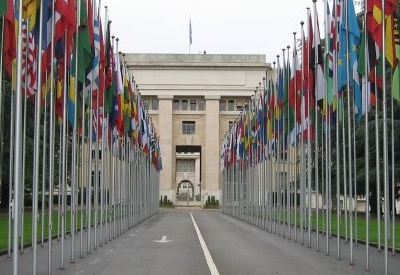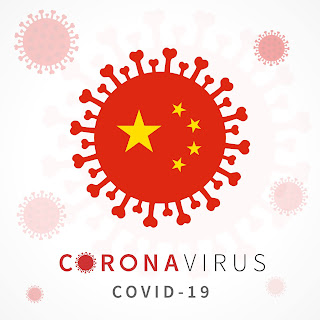China’s "Century of Humiliation" Forming the Central Governments Policy on Territorial Integrity
The notion of a political leviathan, historically, could be traced back to emperor Caesars Rome. However, Lieberthal notes in "Governing China" yjat the "... traditional Chinese state was an awesome political achievement, the most advanced such governing body in the world." 1 It is appropriate to name the CPC - Communist Party China -as a political force in the current international global environment. The CPC is a growing threat to global citizens and the rules based international order that supports democratic freedom of speech and movement.(The current (2025) Trump Administration is behaving monarchical with little regard for well established democratic norms and principles.) The current regime in Beijing, led by Xi Jinping, is an existential threat as the global number two military and economy, below the U.S. but expected to pass the American economy for top status by the mid 2040’s, slowing from typical 6% GDP growth to 1% GDP by 2050) according to Bloomberg economists, in 2023. China has run into a domestic maelstrom with the sputtering Country Garden property developer overcapacity (among others), high youth unemployment (21.3% June 2023), FDI leaving because of Xi’s nationalist approach: see Hong Kong’s political freedoms constrained and the threat to Taiwan’s sovereignty – China claims Taiwan having never governed there, though historical records indicate that the Qing dynasty ruled Taiwan as a suzerain force from 1683 – 1883. Japan won the 1894-1895 Sini-Japanese war. The aftermath saw the Qing administration with the proviso of the Treaty of Shimonoseki cede control of Taiwan. The San Francisco Peace Treaty of 1951-1952 freed Taiwan from Japan and thrust control of Taiwan to Chiang Kai-shek’s nationalist Kuomintang Party.
Mao then, and Xi now, their goal of trying to erase part of China’s history is to propel it into global leaders consciousness as a superpower in both global military and economic power by 2050.
Xi’s flagship - 'Belt and Road Initiative' has echoes of the Silk Road Eurasian trade route. Critics have labeled the BRI as “debt trap diplomacy” leaving indebted countries subservient to China and it’s foreign policy overtones. Italy's Prime Minister Meloni, recently opted out of the BRI citing minimal impact on its growth projections.
China’s overfishing in international waters without requisite permissions creates ill will among those nation states whose livelihoods depend on fisheries for trade and consumption. The Philippines, currently is subject to Chinese aggression within their own EEZ (Exclusive Economic Zone.) China’s “wolf warrior diplomacy” although tempered slightly since COVID, is still present when China feels its territorial integrity is threatened. For competitors that oppose China, it is a double edge sword; on one hand, they offer a huge trade market in Mainland China, and on the other hand, they are difficult to oppose with the PRC’s military might and it’s allies (including Russia) that support their ambitious agenda.
China has been a grappling with the “Century of Humiliation “dating from the Opium Wars- dominated and won by superior European military’s - through colonialism that impacted them on the mainland. Particularly, the oppressive nature of Japan, the United States, the United Kingdom and other allies dating from the Opium War Period to the central governments ethos. China has been fairly steady since the Qing Dynasty and has moved toward socialism with the advent of the Chinese communist party founded in 1921. The Chinese Civil War led to a struggle between nationalist forces and Mao Zedong’s communist party movement that overthrew Chiang Kai-shek’s nationalist forces, that sent them to Formosa - now Taiwan, to establish a new base on that island and prepare for an uprising on the Chinese mainland, with the hope of overthrowing Mao.
Then, with an empowered Chairman Mao ruling China, Chinese officials turned their attention to consolidating power in a colonialist approach that began with an incursion into Tibet beginning with the annexation of Tibet in 1951 that muted the Dalai Lama’s authority. Recently, the Central Government has undermined an agreement with the U.K. that has brought Hong Kong under Chinese control, circumventing an agreement to keep their hands off of Hong Kong freedom until 2047. In addition, a UN Tribunal voted against the Central Government in a 2016 decision that stated that the South China Sea is not Chinese territory and is subject to UNCLOS (United Nations Convention Law of the Sea.) Ironically, China is a P5 member of the UN Security Council that can veto any sanctions against it despite the UN reputation as a global vehicle for collective security. Moreover, — China would consider Japan and others who exorcized genocidal tendencies in the past 100 years and ...other nation states that oppose their territorial claim and ...those actors who seek to control and limit China’s growth to principal rival U.S.A. Therefore, history demonstrates China’s Century of Humiliation as an event, not one person or thing, - a leviathan that opposed them and now a role that they are portraying to pursue their expansionist agenda.
Evidence suggest that “from the invasion in 1937 to the end of WWII, Japanese military agents murdered between 3 - 9 million Chinese; hence, China’s disdain for their past occupierss.2 China’s central government and media is playing the victim card to garner support among China's population to grow support for its intimidating practices. Indeed, China, with the number two global economy and military is a global threat and leviathan that needs global scrutiny regarding its behaviour in international financial transactions, foreign affairs relationships, and approach to climate change and its commitment to reducing its carbon footprint. Helsinki based Centre for Research on Energy and Clean Air (CREA) indicates that China’s carbon output for 2023 is estimated to be three billion tonnes. So, a political power in the Indo Pacific, in particular, because of its victimhood presents many challenges for a prosperous global future. The challenge for western powers is to exercise influence in the South China Sea through FONOPS (Freedom of Navigation Operations) with international partners, while managing the risk of an accident that could spiral into a serious global conflict. Allies are doing this outside China’s orbit with the Five Eyes intelligence alliance (Australia/New Zealand/Canada/United Kingdom/United States) and AUKUS – a trilateral security partnership (Australia/United Kingdom/United States) whose aim is to share nuclear propulsion technology to create a new class of submarine available to the alliance by 2040. The hope is that with a new administration in Canada and with renewed commitment to its NATO goals (NATO recommends 2% of GDP,) Canada can become a partner in AUKUS and more self reliant.
Works Cited
1Lieberthal, Kenneth. Governing China. W+W+Norton & Company. New York. 2004. 2025.
2Statistics of Japanese Democide. Estimates, Calculations, And Sources. R.J.Rummel.1997.
5 December 2023
<https://www.hawaii.edu/powerkills SOD.CHAP3.HTM#:~:text=From%20the%20invasion%20of%20China,including%20Western%20prisoners%20of%20war>.





